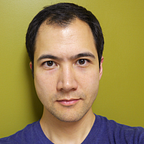The following is not advice, a lesson, or guidance. It’s just some notes I made for myself that might be of interest to others.
I recently listened to Pema Chödrön’s lecture, “From Fear to Fearlessness,” and one of the stories she related in it finally started to shed some light on a question I’ve been asking myself recently.
She mentioned a practitioner that she knew who went through depression before starting to meditate. He thought that he could achieve freedom from his depression by learning meditation and for a short time after starting, he was no longer depressed. At some point however, it came back. He got disheartened that he couldn’t eliminate it completely.
At some point though, he realized that he could not. That depression would come, he would not feel good, but he knew what exacerbated it and that it would go again. In other words, he acknowledged that he had these transient experiences, but came to understand them and not cling tightly to them.
My question
I mentioned that this started to answer a question for me, which I’m still trying to formulate succinctly, but at the moment I need to give a bit of context.
The world seems to be going through a major trend of self-reflection and recognizing things about humanity itself that we didn’t acknowledge before. Everything from the dissection of psychological conditions to personal preferences to professional specialization to brand affiliation to programming languages are a mix of new developments with an acknowledgment of what was always there. This ability to recognize these differences gives us brilliant new insight into ourselves and our world.
What’s been bothering me is that every one of these things is also used as a rallying point for identification. I wrote last year about this problem in the context of programming. People grasp on tightly to these definitions and boldly declare who they are by one of them. For example, in the past, I’ve declared, “I’m an anxious person” or “I’m a sad person” or “I’m a conservative” or, later, “I’m a liberal.”
So my question is, how do we get the benefits of understanding all of these differences and new concepts without tying ourselves down, leading to tribalism, false dichotomies, and the kinds of vitriolic argument we see today online and in politics?
Acknowledgment without attachment
The story of the man I mentioned above and other points in Pema Chödrön’s lecture have helped me infer a path to my answer. Namely, acknowledging that the feelings, pursuits, and interests in ourselves and others are real and deserve our attention. Mindfulness practice is important for recognizing what we’re actually feeling while listening and believing others is necessary to understand our full world.
Nonetheless, we cannot attach ourselves to what we’re feeling now or in the past and believe it defines us forever. Our mindful practice must continue every day to inform us of what’s true now. Identification and attachment are a form of energy saving that may help us feel good in the short term, but cannot be long-term solutions without imposing rigidity.
As I mentioned above, I wrote this mainly for me to help figure out some things. I hope it helped you. If you think I’ve gotten this all wrong and you’ve got some helpful advice for me, I’d love to hear it. 💗💗💗
